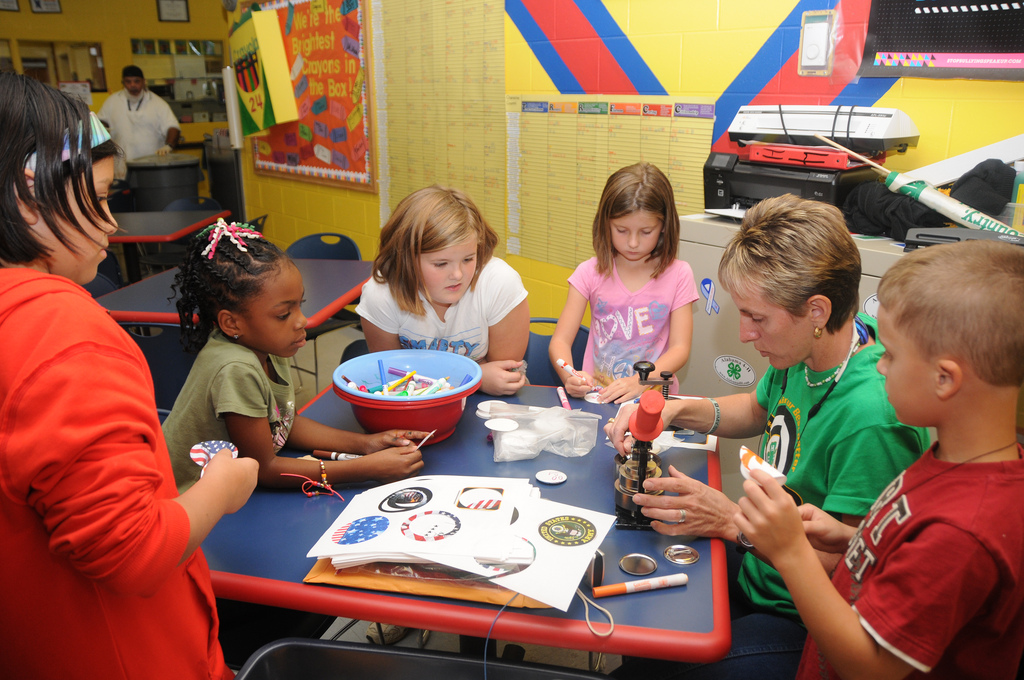Views expressed in opinion columns are the author’s own.
Earlier this month, the Trump administration proposed cutting federal funding from the 21st Century Community Learning Centers, a key source of federal funding for after-school programs. The programs help more than 1.6 million children nationwide, most of them poor. Office of Management and Budget director Mick Mulvaney claims the program is being cut because it doesn’t work. The truth is these programs are crucial to the lives of so many children and families whose well-being the current administration consistently disregards.
First, it is necessary to address Mulvaney’s claim that the federally funded programs do not help students’ academic performance. The Global Family Research Project’s Heather Weiss has studied the programs for nearly 20 years and disagrees. “Engaging kids in high-quality after-school programs, many of which are supported by 21st Century Community Learning Centers grants, results in kids doing better in school,” she told The Washington Post. “They’re more likely to graduate and to excel in the labor market.”
Studies done in two of the largest states using the programs, California and Texas, also found measurable gains. The programs correlate with increases in test scores, attendance and chances of moving up to the next grade level.
Of course, it should be pointed out that the real value of these programs comes from what they provide to low-income students. Lawmakers can argue all day about their interpretation of test score statistics, but what actually matters about this issue is far less ambiguous. For many parents, after-school programs are the only way they can be sure their kids are safe while they are at work. This is especially true for single parents who rely on the programs for afternoon childcare until they get off from work late at night.
Beyond the supervision the students receive, many of these programs also offer a snack or meal. In many cases, a cut to after-school programs would mean taking food away from children who may not be well-fed at home. In Prince George’s County alone, there are 75 current Title 1 public schools or institutions receiving federal funding to assist their high percentages of students from low-income families. Most programs that 21st Century Community Learning Centers funds are centered at Title 1 schools, meaning that Trump’s proposed budget cuts would directly harm a disproportionate number of children within our College Park community.
For these reasons, the Trump administration’s proposed cuts are ill-advised and will surely work to the detriment of communities of color, whose schools already face enormous obstacles.
The writer Clint Smith pointed out on Twitter, “What’s insidious is that they’ll cut after-school programs, something may happen to your kid, then they’ll call you an irresponsible parent.” This cycle is nothing new for poor communities of color; it’s been going on throughout this country’s history. We’ve designed an education system that is racially segregated and economically disparate. Cutting funding for after-school programs would further that disparity, by taking education, food and safety away from students who need it.
As you continue to hear public discourse on the “results” of after-school programs, please remember, the issue here is not test scores but the well-being of children. As Smith put it, “The extent to which the real lives of poor folks are rendered budgetary abstractions is both morally abhorrent & empirically dishonest.” Our president must be reminded that there is nothing abstract about the hunger of a poor child.
Jack Lewis is a junior government and politics major. He can be reached at jlewis20@umd.edu.



